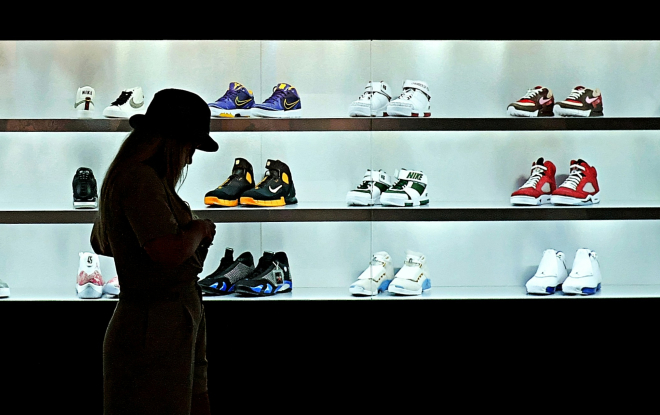Finding an ethically made pair of shoes is way harder than it should be! If the footwear industry was fair and sustainable, the weight of making the “right choice” wouldn’t be on us consumers – it would simply be the retail standard. But it isn’t. The footwear market rewards the fastest, cheapest and most disposable products. Until governments, brands, and investors step up, we’re left to navigate the minefield of buying better and discerning what is greenwashing and what is real.
But the right decision isn’t always clear. There are trade-offs and grey areas leading to purchasing uncertainty. This is why 68% of Kiwis said their biggest barrier to shopping ethically is not knowing how to make the best choice.
Your needs matter too. Maybe you need tough work boots, new running shoes for your first half-marathon, or perhaps you just love shoes. That’s okay! What’s important is pausing long enough to choose consciously in a system built for unconscious buying.
These six questions are our go-to way of slowing down, so we can make footwear decisions we feel confident about.

#1: Why am I buying this?
Is it a genuine need, or a momentary rush? Retail therapy is real but fleeting. It can be a distraction from difficult emotions, an attempt to regain control, or the pursuit of a quick dopamine hit. Before you hit “Buy now”, pause. Give yourself time (even a few days) to decide if you really want to make this purchase.
#2: Do I already own something that works?
The average British woman owns 24 pairs of shoes. While we might not all hit that number, chances are you already own a pair that do the job.
Selecting from your current collection is not just about saving space, time or money. It also cuts demand in an industry that’s a major contributor to global pollution. Every pair you decide not to buy eases the environmental burden of overproduction. And you’re not alone in making the most of less. In 2024, 22% of New Zealanders told us they didn’t buy a single pair of shoes (new or second-hand).
.jpg?ver=E1XuHs0FUg3tzeS-ST3ALQ%3d%3d)
#3: Can I find it second-hand?
Op shops, Trade Me, and Facebook Marketplace are full of great quality barely worn (or even never-worn) shoes, often at a fraction of the price. Buying second-hand extends a shoe’s life, keeps it out of the bin, and cuts demand for virgin materials. Think of it as rescuing a pair from landfill.
Join the 8% of New Zealanders polled who purchased second-hand shoes last year.
#4: What values are most important to me?
When it comes to shoes, there is rarely a perfect “ethical” choice. For some, the highest priority is worker rights and living wages. Others might focus on animal rights, cutting carbon emissions, or protecting oceans and rivers. Some choose durability and quality so they can wear fewer pairs for longer.
Every ethical choice involves trade-offs, so it depends on which values are most important to you.
#5: Can I support a brand that’s doing better?
Some shoe companies make more ethical choices than others. They might be more transparent in their supply chain, pay a living wage, or design shoes to be worn for years.
Sustainable footwear might cost more upfront, which isn’t realistic for everyone. But when it is, choosing higher-quality, more responsible brands can mean buying less in the long run - and supporting progress where it matters. Check out this blog on how to find brands doing better.
.jpg?ver=ksLgOlL5ekT5eC2_RuMaCA%3d%3d)
#6: Will I wear this often?
The most sustainable shoes are the ones you love to wear. Ask yourself: will I wear these at least 30 times? Will I clean, polish, or repair them? A little maintenance like replacing insoles or resoling boots, extends their life dramatically and cuts waste. Check out our Boot Camp blog for some quick tips to care for your shoes.
These six questions aren’t about guilt; they’re about agency. They help us pause, make thoughtful choices, and avoid being trapped by a flawed system. Sometimes your answer will be “buy it,” sometimes “wait a few days,” or maybe “I can repair what I already have.”
When enough of us choose differently, brands and governments start to notice. We may never make perfect choices, but the more we pause and ask these questions the more pressure we put on the industry to change.
Do what you can and ask the questions!
Then take your own steps in more ethical footwear, towards a fairer world.